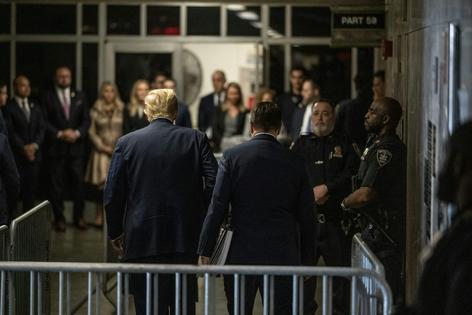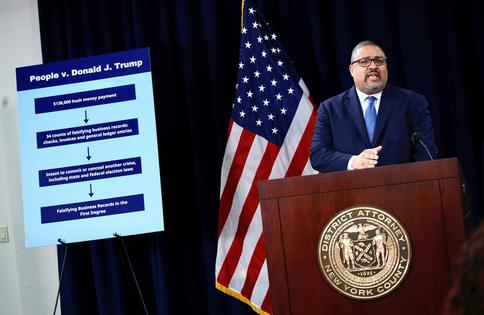Opening statements are the most important part of a trial – as lawyers in Trump’s hush money case know well
Published in Political News
Though Hollywood movies about courtroom dramas often glamorize the closing arguments given by lawyers, in reality the opening statement is likely the most important single event of a trial.
Such was the case in the hush money trial involving former President Donald Trump and alleged payments to porn star Stormy Daniels when lawyers for both sides presented their opening statements on April 22, 2024, in New York.
In this case, Manhattan District Attorney Alvin Bragg charged the former president with 34 felony counts of falsifying business records as part of an effort to influence voters’ knowledge about him before the 2016 presidential election. Trump entered a plea of not guilty.
During his opening argument, prosecutor Matthew Colangelo told the jury that Trump was part of a conspiracy to conceal negative information about him in order to help get him elected. “Then he covered up that conspiracy by lying in his New York business records, over and over and over again,” Colangelo said.
For Trump’s defense, lawyer Todd Blanche was direct. “President Trump did not commit any crimes.”
Blanche explained that Trump was “not involved and unaware” about the specifics of the hush-money payments because he left it all to Michael Cohen, his former lawyer and fixer who is expected to testify for the prosecution. Blanche described Cohen as being a “criminal” who was “obsessed” with Trump and looking to take personal revenge.
How will these contrasting opening arguments play on the jury?
Academic psychologists tell us that between 65% and 75% of jurors make up their minds about a case after the opening statement. What’s even more incredible is that 85% of those jurors maintain the position they formed after the opening statement once all evidence is received and the trial is closed.
More often than not, it is too late by closing arguments to win over the jury.
This phenomenon comes as no surprise to veteran trial lawyers. They are aware of two theories that define how jurors – indeed, people generally – process information: the concepts of primacy and recency.
...continued











Comments